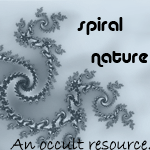Anarchy and information
By Psyche | July 4, 2008 | Print This Post | E-mail This Post | 5 Comments
 I first came across Siva Vaidhyanathan‘s excellent and wonderfully lucid book, The Anarchist in the Library: How the Clash Between Freedom and Control Is Hacking the Real World and Crashing the System
I first came across Siva Vaidhyanathan‘s excellent and wonderfully lucid book, The Anarchist in the Library: How the Clash Between Freedom and Control Is Hacking the Real World and Crashing the System, via Wes Unruh‘s recommendation on Alterati.com.
It looks at the way we interact with information with a focus on ownership and distribution, arguing that the way we structure this can be boiled down into two essential forms: anarchistic and oligarchic systems.
Vaidhyanathan avoids cartoonish portrayals of anarchy, sticking largely to anarchy’s core definition: the absence of recognized authority, rules imposed or enforced. Oligarchic forms use the rule of the few, the elite who decide how and where information is distributed, if at all. They set the the rules, and they hold all the cards.
The focus of this book is largely on the Internet and the ideological war between these two camps and how they will shape the future relating to how we interact with information and technology. He writes:
The Internet was built according to cynical principles – borderlessness, unregulatability, peer-to-peer openness, and peer-review accountability – which also belonged to the realms of science and the academy.1
An approach which is slowly being eroded by legal battles over copyright, trademarks and claims to intellectual property.
I came of age with the Internet, its structure and implied politics played a part in shaping and defining my own. I’m comfortable using it as a microcosm of how we view and interact with information in our world today, and – with an awareness I could be pining for a Golden Age – it’s not what it once was. It’s become far more conservative and regulated, a trend I see extending beyond its boarderlessness.
Consider, for instance, sampling and the lawsuits that result, the rights to dead groups, and the recent trademark case.
In the 90s, there was this idealistic notion that “information wants to be free”, file-sharing was (and continues to be) rampant, exposure to new music, new products, new ideas flowed freely and (for a time) happily. Interests which were obscure or rare among the people you met over the regular course of your day were suddenly available at the click of a button.
So enthusiastic, it’s adorable:
Anarchistic functions and methods have been around for many centuries. Recently individuals have used widespread, low-cost, high-quality technologies to communicate, persuade, and organize over long distances, beyond the prying eyes of powerful institutions. Digitization and networking make anarchy relevant in ways it has not been before. Global electronic networks make widespread anarchistic activity possible. What used to happen in a neighbourhood barbershop or on a park bench now happens across a nation-state or beyond. Rumors can bubble up into action.2
Whether that action takes the form of Insurrection or conventions for comic geeks and furries or a myriad of newsgroups, e-lists, newsletters, forums, social networking sites and so on for magicians specializing in Renaissance alchemy: communication is available on a far broader scale than previously possible.
Geeze, just think of the number of occult e-books you’ve got pirated on your harddrive.
Kinda makes you wonder, Is it better that material be available no matter who profits, or that it is tightly controlled and remains unpublished or commented upon? What motivates either response?
Either way, Vaidhyanathan argues that culture is a more intricate and lively thing than what it is most often mistaken for, writing:
The collection of end products of culture – the symphonies and operas, novels and poems that survive the rigorous peer review of markets and critics – are often taken as the culture itself. Instead, culture is the process that generates those products. If it is working properly, culture is radically democratic, vibrant, malleable, surprising and fun.3
Culture is not static: it is evolutionary:
If you assume culture is zero-sum, that it can be “stolen” or “sold,” then you can’t acknowledge that culture is anarchistic and emerges from common, everyday interactions among people and peoples. Perhaps you see cultures as once sealed, now violated. Perhaps you see culture, as nineteenth-century English critic Matthew Arnold did, as a stable set of ideas and expressions that define a society and demand a defense by elites.4
Does culture require protecting in this way? What does that speak to?





yesssssss
culture is a PROCESS
i also find it rather ironic that the copyright case (the cOTO thing) has been crowed about by someone in that order who also publicly expounds the free software movement, but who for at least part of his income writes computer games- softwares which are not given out freely, and is also in a rock band and would presumably object to his music being pirated….
or perhaps that is just a demonstration of fluidity…..
…Often also known as inconsistency, but the troubling part is that there’s no attempt to determine what makes one seem outrageous, and the other sensible.
This is an interesting essay but the author is confused and misapplies his ideology. He is correct when he says:
The collection of end products of culture – the symphonies and operas, novels and poems that survive the rigorous peer review of markets and critics – are often taken as the culture itself. Instead, culture is the process that generates those products.
But this is when he applies his ideology and is historically incorrect.
If it is working properly, culture is radically democratic, vibrant, malleable, surprising and fun.
In reality, “democratic culture creation” is only a few centuries old. I would argue it is a result of the Enlightenment of the 18th century. Since then culture creation has moved from the hands of the elites (the aristocracy or oligarchs) to first the middle classes and then working classes. Today culture creation is predominantly in the working classes and extends up into the middle classes. I would also argue that as it has become democratic, quality has diminished greatly. The art we all revere as “the masters” was created under the “oligarchs.” The music that is classical and the standard of high culture was also created under the “oligarchs.”
Democracy allows all comers and thus the culture sinks to the lowest common denominator. This is why the working classes are so prevalent in modern culture creation—it has sunk to their level. Under the oligarchs Britney Spears, 50 Cent, Paris Hilton, and Snoop Dogg would not be celebrities. A Bach symphony shows much more skill, knowledge of music, and culture than the latest CD from “The Dogg Pound.” Yet the latter will sell more in today’s market than a symphony, even if the symphony is written by John Williams and is the sound track for the latest popular movie.
Democracy privileges quantity over quality. Oligarchs privilege quality over quantity. It is a question of access, foregrounding, training, and so forth. As the gate keepers, they made determinations about quality that the market cannot make today. There is a lot more political and ideological going on in Vaidhyanathan’s book too. Unfortunately, it is not really anything new. Trying to package the internet as the newest level of evolution personally or politically has been done and is superficial and weak. Real evolution happens personally, individually and is located in the body and mind. Books like these were so common in the 80s and early 90s that their calls for the internet ot be the next wave of evolution were like those of the paperless office. The latter was shown to be false quickly; it will take a little longer to show the former is just as empty.
The art we all revere as “the masters” was created under the “oligarchs.” The music that is classical and the standard of high culture was also created under the “oligarchs.”
I recall Virginia Woolf expressed a similar sentiment, noting that while anyone might write, those who do it well tend to be well educated and well read, an idea – alone – is rarely enough.
Democracy privileges quantity over quality. Oligarchs privilege quality over quantity. It is a question of access, foregrounding, training, and so forth.
In the immediate present that’s certainly true, however we’ll need more time to see how the Britney, Snoop and Ms Hilton fair in terms of enduring cultural relevance. At the moment a relevant basis for comparison is absent – if it’s mass produced, mass consumed, and forgotten a year or five later, how is that art?
The general sentiment the Internet in the 90s inspired was euphorically optimistic and anarchistic in the best possible sense. Vaidhyanathan’s book serves as a warning for those who want to maintain some sense of freedom in what is created and communicated, despite an overwhelming tendency for the masses to lay back and accept whatever the latest ruling turns out to be as, generally, they’re not directly affected by it. He’s cautioning against this apathy as it is likely to have wider implications down the line.
As he later writes:
I’m a little conflicted. I remember and see reflected here the starry idealism of the 90s Internet, but my experience of the Internet today, and of culture in general, no longer makes it appear possible, or indeed even reasonable.
As Mark Kingwell wrly comments in Concrete Reveries, to notice a thing is “to notice nothing except the creepy ease of thinking notation equals analysis”.
No real answers have been provided, but it’s still something worth thinking about, being conscious of, and changing if we’re uncomfortable with the way things sit.
[...] has their critics, and culture-protection is a subject I touched upon a while ago, but it bears revisiting, especially in the wake of other posts which have cropped up on various [...]